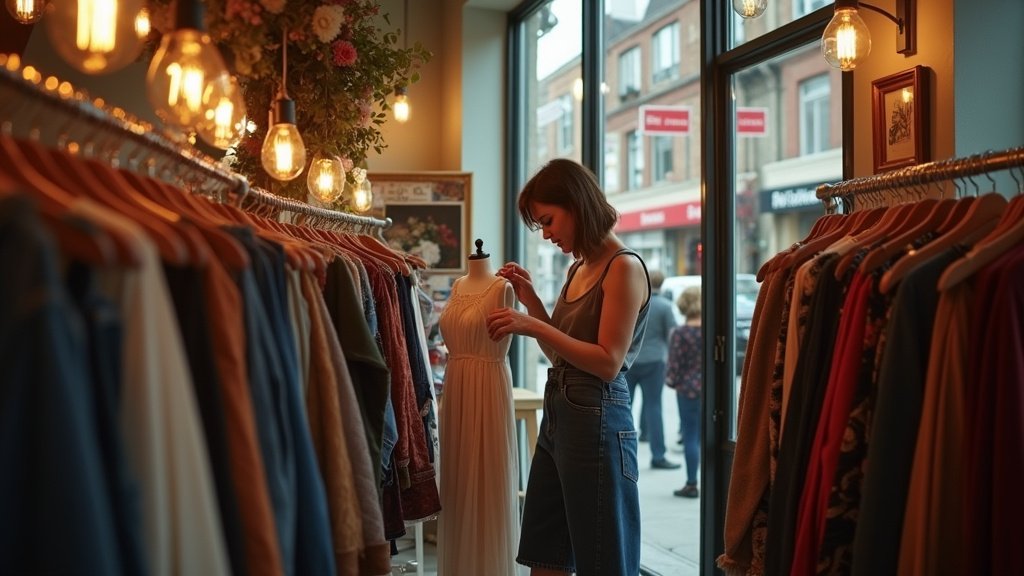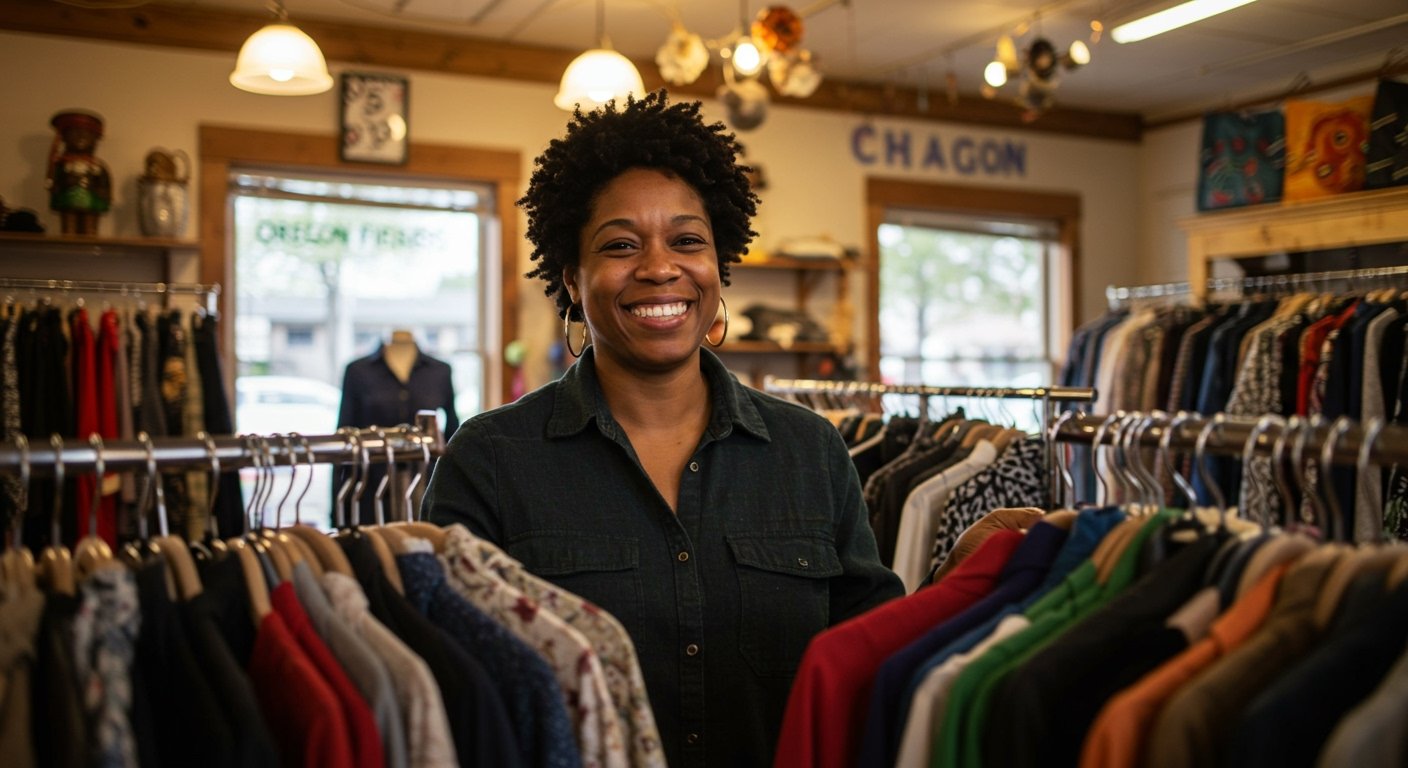Two Decades of Change: Garnish Apparel Navigates the Shifting Sands of Fashion
In the heart of downtown Portland, Garnish Apparel is celebrating two decades in business, a milestone that offers a unique vantage point on the evolving landscape of the fashion industry. Owner Erica Lurie, reflecting on the past twenty years, acknowledges the profound impact that the internet and the rise of fast fashion have had on local clothing makers. Her perspective provides a valuable lens through which to examine the significant transformations that have reshaped how people shop and the challenges faced by businesses rooted in craftsmanship and community.
Lurie, whose early work included crafting bespoke wedding dresses, has witnessed firsthand the acceleration of fashion trends. The relentless churn of styles, fueled by social media and the internet, presents a stark contrast to the more deliberate, community-focused approach that defined Portland’s fashion scene in the early 2000s. The ease with which consumers can now access global trends, instantly replicating them, stands in opposition to the slower, more considered approach of local designers.
From Community to Consumption: The Rise of the Digital Marketplace
Before the ubiquity of online shopping and fast-fashion retailers, Portland’s fashion scene fostered a unique sense of collaboration and customer care. Local designers often built strong relationships with their clientele, offering personalized service and creating garments designed to last for years, even decades. These were not merely items of clothing; they were investments in a unique wardrobe. The emphasis was on individual expression, and the value was placed not on fleeting trends but on enduring quality and personalized fit.
This focus on longevity contrasts sharply with the ethos of fast fashion, which prioritizes rapid production and disposable trends. The shift has impacted not only the way consumers shop, but also the very nature of the relationship between maker and customer. Lurie’s reflections on the changing landscape highlight the struggle to maintain a connection with customers when so much of the shopping experience has moved online.
Mink Boutique: Navigating the New Normal
Carla Mink, owner of Mink Boutique, opened her shop in 2007, a time when the fast-fashion industry was quickly gaining traction. She echoes Lurie’s observations, noting the challenges that local boutiques face when competing with the ease and price point of mass-produced clothing. She saw first-hand the shift in customer behavior as shoppers increasingly turned to online platforms and fast fashion outlets.
Customers would often browse Mink Boutique, drawn to the curated selection of styles, but ultimately purchase directly from designers online. This illustrates a key trend: a consumer desire for trendy items coupled with the convenience of online shopping and a price point that small businesses often struggle to match. This dynamic has forced local businesses to adapt, searching for ways to differentiate themselves and offer value beyond mere product.
Preserving Craftsmanship in a Changing World
The experiences of Garnish Apparel and Mink Boutique are indicative of broader trends affecting local businesses across the country. The ability to adapt, innovate, and maintain a strong connection with the community is key to survival. Emphasizing quality, sustainability, and unique design remains an important strategy for businesses like these.
As the fashion industry continues to evolve, the stories of these Portland businesses highlight the enduring value of craftsmanship, community, and the importance of supporting local artisans. Their experiences serve as a reminder of the human element often lost in the fast-paced world of modern consumption and of the need to find a balance between embracing new trends and preserving the rich heritage of local creativity.




